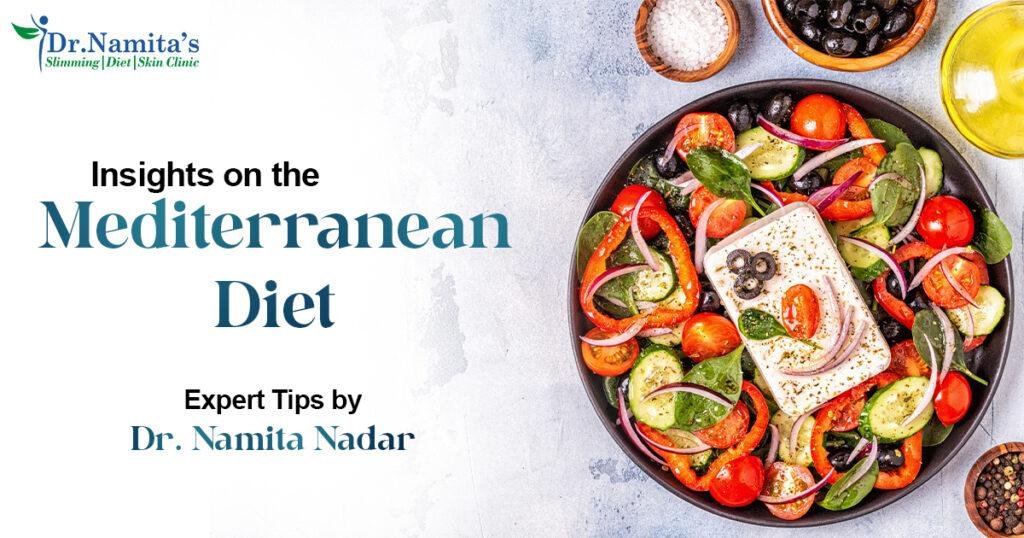The Mediterranean Diet has gained immense popularity as one of the healthiest eating patterns in the world. Rooted in the traditional cuisines of countries bordering the Mediterranean Sea, this diet emphasizes fresh, wholesome ingredients and balanced nutrition. Dr. Namita Nadar, a renowned dietitian, shares her insights into the Mediterranean Diet, explaining its benefits, food examples, and potential pros and cons.
Explanation of the Mediterranean Diet
The Mediterranean Diet is centred around plant-based foods, healthy fats, lean proteins, and limited processed items. Key elements include:
- Fresh fruits and vegetables
- Whole grains
- Nuts and seeds
- Olive oil as the primary fat source
- Fish and seafood consumed regularly
- Dairy and poultry in moderation
- Red wine in small amounts
- Limited consumption of red meat and sweets.
This diet focuses on nutrient-dense foods and encourages mindful eating practices, which contribute to its long-term sustainability.
Benefits of the Mediterranean Diet
- Heart Health: Rich in omega-3 fatty acids, it helps reduce bad cholesterol and improves heart function.
- Weight Management: The diet promotes satiety, making it easier to maintain a healthy weight.
- Reduced Inflammation: The anti-inflammatory properties of olive oil and nuts benefit overall health.
- Improved Brain Function: Nutrient-rich foods like fish and vegetables enhance cognitive abilities.
- Lower Risk of Chronic Diseases: It reduces the risk of diabetes, hypertension, and certain cancers.
Pros and Cons of the Mediterranean Diet
Pros:
- Easy to follow with no strict calorie counting.
- Focuses on whole, natural foods.
- Proven health benefits backed by research.
Cons:
- Can be expensive due to the emphasis on fresh produce and seafood.
- Requires preparation time for fresh meals.
- May not suit individuals with specific dietary restrictions (e.g., seafood allergies).
Food Examples in the Mediterranean Diet
- Breakfast: Greek yoghurt with honey and fresh berries.
- Lunch: Quinoa salad with mixed greens, cherry tomatoes, olives, and olive oil dressing.
- Dinner: Grilled salmon with roasted vegetables and whole-grain bread.
- Snacks: Almonds, walnuts, or hummus with carrot sticks.
The Mediterranean Diet offers a delicious and sustainable approach to healthy eating. By incorporating its principles, you can enjoy a variety of flavours while improving your overall well-being.

